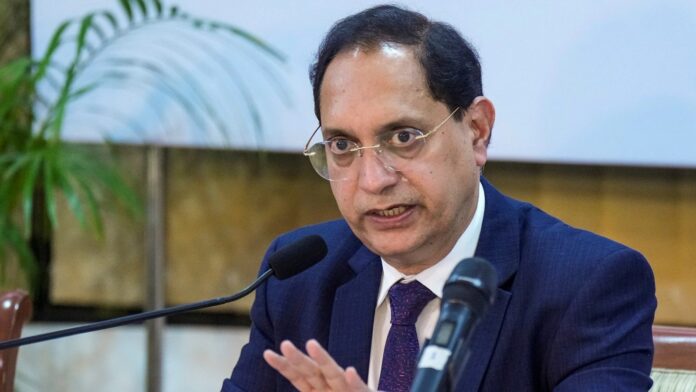SEBI’s New Proposal: A Game Changer for Foreign Portfolio Investors
In a significant move aimed at enhancing the ease of doing business for foreign portfolio investors (FPIs), the Securities and Exchange Board of India (SEBI) has proposed the introduction of a single automatic window for foreign investors. This initiative, announced on a recent Friday, is designed to streamline the investment process and make India a more attractive destination for foreign capital.
The SWAGAT-FI Framework
The cornerstone of this proposal is the introduction of the Single Window Automatic & Generalised Access for Trusted Foreign Investors (SWAGAT-FI) framework. SEBI Chairman Tuhin Kanta Pandey elaborated that this framework will cater to both FPIs and Foreign Venture Capital Investors (FVCIs). The primary objective is to unify and simplify the registration process across various investment routes, thereby reducing regulatory complexity and enhancing compliance.
The SWAGAT-FI framework will specifically target select categories of foreign investors who meet defined eligibility criteria. This includes government and government-related investors, as well as appropriately regulated Public Retail Funds (PRFs) such as mutual funds, insurance companies, and pension funds. Existing FPIs that meet these criteria will also have the option to convert to SWAGAT-FI status, making the transition smoother for those already invested in the Indian market.
Addressing Investor Concerns
This initiative comes at a crucial time when foreign investors have been withdrawing significant amounts from the Indian equity market. Since July, FPIs have offloaded shares worth ₹63,516 crore, raising concerns about the attractiveness of Indian equities. By simplifying the investment process, SEBI aims to restore confidence among foreign investors and encourage them to reinvest in the Indian market.
Relaxation of IPO Norms
In addition to the SWAGAT-FI framework, SEBI has proposed to relax initial public offering (IPO) norms for large issuers. For companies with a market capitalization between ₹1 lakh crore and ₹5 lakh crore, the minimum public offer has been recommended at 2.75%. However, the final decision on these norms will rest with the government. This relaxation is expected to facilitate easier access to capital for large companies, thereby stimulating economic growth.
Strengthening Governance in Market Infrastructure Institutions
SEBI is also taking steps to enhance regulatory and operational excellence within market infrastructure institutions (MIIs). The board has approved the appointment of two executive directors of appropriate stature and independence to lead Vertical 1 and Vertical 2, who will also serve on the governing board of the MII. This move aims to strengthen succession planning and ensure that governance structures are robust and effective.
Enhancing Participation in IPOs
To promote inclusive participation of institutional investors in the IPO process, SEBI has increased the overall reservation for the anchor portion from one-third to 40%. Of this, one-third will continue to be reserved for domestic mutual funds, while the remaining portion will be allocated to life insurance companies and pension funds. This change is expected to attract a broader base of institutional investors, thereby enhancing the overall quality of IPOs.
Material Related Party Transactions and AIF Schemes
In a bid to improve transparency, SEBI has introduced scale-based thresholds based on the annual consolidated turnover of listed entities for determining material related party transactions (RPTs). This measure aims to ensure that investors are adequately informed about significant transactions that could impact their investments.
Additionally, SEBI has approved the introduction of a separate category of Alternative Investment Fund (AIF) schemes, exclusively for accredited investors. These AI-only schemes will offer specific regulatory flexibilities, reducing compliance burdens while still protecting investor interests.
Investor Protection and Financial Inclusion
To further enhance investor protection and promote financial inclusion in the mutual fund space, SEBI has announced a reduction in the maximum permissible exit load from 5% to 3%. This change is expected to make mutual funds more attractive to retail investors, encouraging greater participation in the market.
Moreover, SEBI has revised the incentive structure for distributors to promote new inflows from B-30 (beyond Top-30) cities, thereby broadening the reach of mutual fund investments across the country.
Conclusion
SEBI’s recent proposals represent a comprehensive effort to enhance the ease of doing business for foreign portfolio investors and improve the overall investment climate in India. By introducing the SWAGAT-FI framework, relaxing IPO norms, and strengthening governance structures, SEBI is taking significant steps to attract foreign capital and foster a more inclusive and transparent investment environment. As these changes are implemented, they hold the potential to reinvigorate foreign investment in the Indian market, ultimately contributing to the country’s economic growth and stability.

